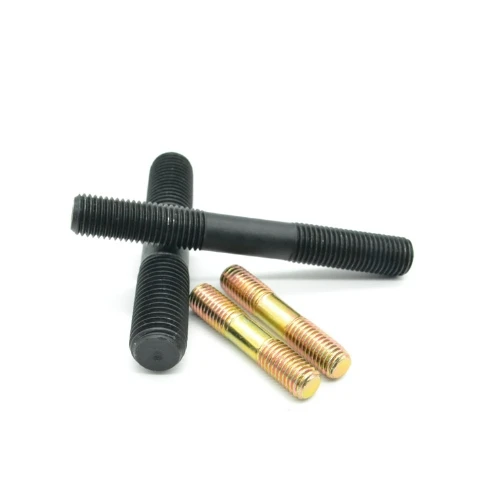valve cover gasket bolts manufacturers
Sep . 26, 2024 08:00 Back to list
valve cover gasket bolts manufacturers
Understanding Valve Cover Gasket Bolts Manufacturers
When it comes to automotive engineering, every component has its specific role in ensuring the smooth operation of an engine. One such crucial component is the valve cover gasket, which plays a significant part in the overall performance and longevity of an engine. The valve cover gasket sits between the valve cover and the cylinder head, preventing oil leaks while containing the pressure produced during the engine’s operation. However, to keep this gasket securely in place, the right bolts are required. This article explores the world of valve cover gasket bolts manufacturers, discussing the importance of quality, the types of materials used, and what to consider when choosing a manufacturer.
The Role of Valve Cover Gasket Bolts
Valve cover gasket bolts serve as the final binding element that holds the valve cover and gasket in a secure position against the cylinder head. The right bolts ensure that the gasket is compressed adequately, providing a durable seal that prevents oil from leaking. If the bolts are of poor quality or improperly torqued, it can lead to gasket failure, oil leaks, and possible engine damage.
Importance of Quality
Quality is paramount when it comes to valve cover gasket bolts. Low-quality bolts can corrode, break, or deform over time, leading to potential gasket failure. Manufacturers must adhere to strict industry standards when producing these bolts to ensure they can withstand the harsh conditions of engine operation, including exposure to high temperatures and oils.
QUALITY METRICS
1. Material The choice of material affects not only durability but also resistance to corrosion. Stainless steel and high-grade carbon steel are two popular materials used in bolt manufacturing. 2. Coating Some manufacturers apply special coatings to enhance corrosion resistance, which can prolong the life of the bolts significantly.
3. Heat Treatment Bolts that undergo heat treatment exhibit improved strength, making them more reliable in demanding environments.
Types of Valve Cover Gasket Bolts
Manufacturers offer various types of valve cover gasket bolts to cater to different engine designs and specifications
. Generally, these can includevalve cover gasket bolts manufacturers

1. Hex Head Bolts The most common type, featuring a hexagonal head that can be tightened with a wrench. 2. Socket Head Bolts Also known as Allen bolts, these have a cylindrical head with a hexagonal hole, allowing for tighter spaces.
3. Flanged Bolts These provide a larger bearing surface, reducing the chance of crushing the gasket and providing a more reliable seal.
Choosing a Manufacturer
When selecting a valve cover gasket bolt manufacturer, several factors should be taken into consideration
1. Reputation Research potential manufacturers to ensure they have a solid reputation in the industry. Look for customer reviews and testimonials highlighting their quality and service level.
2. Certifications Check whether the manufacturer holds any certifications related to quality management, such as ISO 9001. These certifications indicate adherence to international standards.
3. Range of Products A manufacturer that offers a wide range of products may be preferable, as this ensures compatibility with various engine models.
4. Innovation Companies that invest in research and development often provide superior products, utilizing advanced materials and manufacturing processes.
5. Customer Support Good customer support can make a significant difference in your purchasing experience. Ensure the manufacturer offers assistance with technical support, warranty inquiries, and product returns.
Conclusion
Valve cover gasket bolts may seem like a minor component in the grand scheme of engine technology, but they are essential for ensuring the integrity and performance of an engine. When selecting a manufacturer for these bolts, it’s crucial to prioritize quality, materials, and the overall reputation of the company. By doing so, you can help ensure that your engine operates efficiently and remains in good condition for years to come. As technology and automotive engineering evolve, staying informed about the best practices and manufacturers in the industry will help you make the best choices for your vehicle.
Latest news
-
High-Quality Panel Stud Bolt Reliable Panel Stud Bolt Factory & Suppliers
NewsJul.08,2025
-
High-Precision Fine Thread Locknuts Manufacturer & Supplier Custom Solutions
NewsJul.08,2025
-
PH Imperial Stud Bolt – High Strength Fasteners from Leading Supplier & Factory
NewsJul.07,2025
-
High-Quality Allen Wrench Bolts Leading Factory, Company & Suppliers
NewsJul.07,2025
-
Wholesale Ball Stud Bolt - High Quality Supplier & Factory Price Reliable Wholesale Ball Stud Bolt Company
NewsJul.06,2025
-
High-Strength Alloy Bolts Manufacturer & Supplier Quality Alloy Fasteners Factory
NewsJul.06,2025
